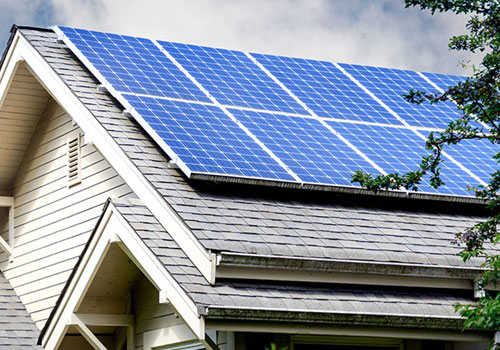
RESIDENTIAL SECTOR
Solar panels in the residential sector are widely used for sustainable and cost-effective energy generation. Homeowners install rooftop solar panels to reduce electricity bills, lower carbon footprints, and gain energy independence. These systems convert sunlight into electricity, powering household appliances, lighting, and heating systems.
Net metering allows homeowners to send excess power back to the grid, earning credits and further reducing energy costs. Additionally, battery storage solutions enable energy usage during nighttime or cloudy days, ensuring a reliable power supply.



